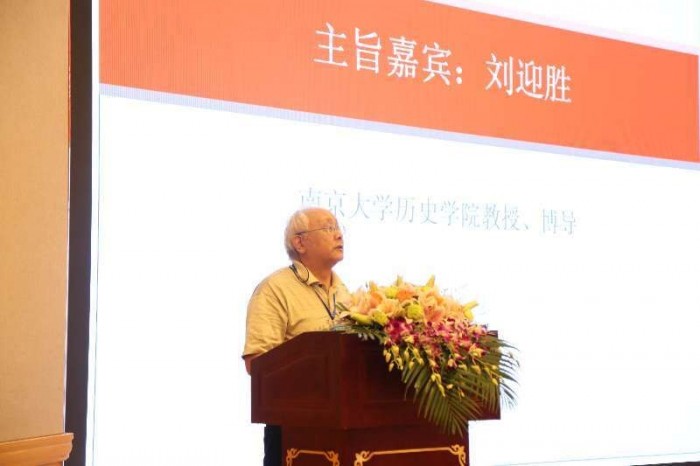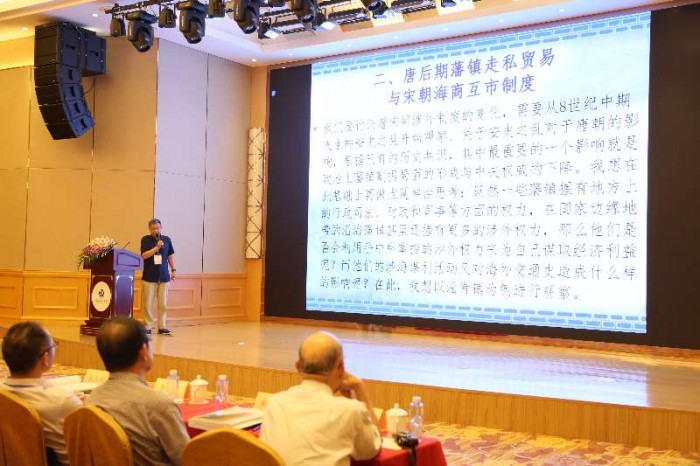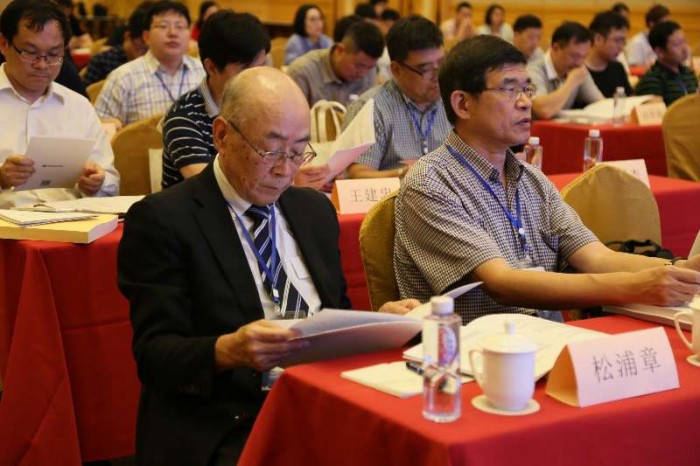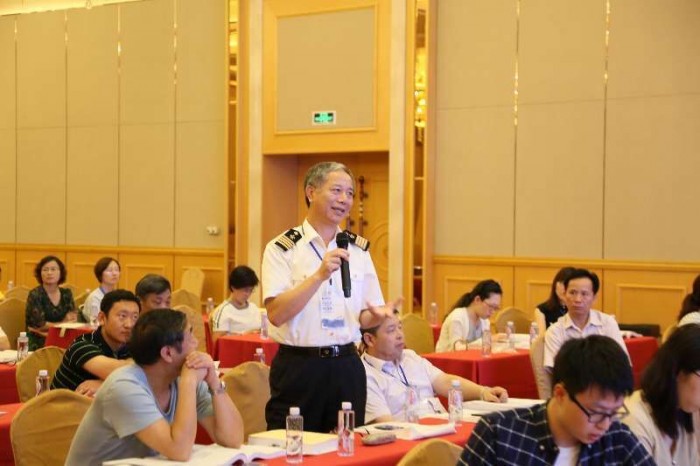International Symposium on "Silk Road Chords: Chinese Navigation History and Culture in Globalization" was held successfully in Shanghai on August 16 and 17, 2018. The symposium was jointly held by China Maritime Museum, Maritime History and Culture Research Committee of CIN and Maritime Museum Committee of Chinese Museum Association. Over 90 guests attended this meeting, including delegates of the Maritime Committee, experts and scholars of maritime history and culture from Beijing, Zhejiang, Jiangu, Suzhou, Chongqing, Hubei, Liaoning,Fujian, Guangdong, Hebei, Shandong, Hainan, Japan, the United States, etc.
The theme of this symposium was "Silk Road Chords: Chinese Navigation History and Culture in Globalization". In the keynote section, Liu Yingsheng, Professor from Nanjing Univerity, Rober J.Antony, Professor from Guangzhou University and Chen Shangsheng, Professor from Shandong University, respectively delivered three keynote speeches: Asian Waters in Ancient Chinese Literature, Who is San Po?--- A Brief Discussion on the Popular River God of Southern China Sea, and Changes of Foreign-related Systems in Tang and Song Dynasty and China overseas transportation. They focused on the relations of Asian sea areas, Water God belief, foreign-related systems and overseas transportation for the purpose of deeply analyzing and interpreting the history and culture of Chinese navigation from the perspective of globalization in different aspects.
On the afternoon of August 16th, the symposium entered into the academic discussion session. The theme of the first sub-forum was "Maritime Transportation and Trade". 15 professors had heated discussions on the international waterways in South China Sea, and waterway expansion in different periods between East Asian Seas, seacraft construction, ship system, harbor relocation, trade exchange and other subjects.
On the morning of August 17, the second and third sub-forums were held simultaneously. The theme of the second sub-forum was "maritime technology and literature". Scholars discussed the inheritance of navigation technology, the reform of navigation political system and the changes of "Haidaozhenjing" (24 water bearing compass)from various maritime literature, including Weng Shenjun, Chen Bo from Nanjing University, Zhao Siqian from Kansai University, Zhou Haibin from Shenzhen Univerity, Zhao Li, Shan Li from China Maritime Museum, Xue Yanqiao from Quanzhou Maritime Museum.
The theme of the third sub-forum was "Oceanic Culture and Society", and experts had an in-depth discussion on the realization of cultural exchange and interaction in different regions through navigation activities, including Hangxing from Brandeis University, Ning Bo and Chen Ye from Shanghai Ocean University, Zhou Lei from Chinese Academy of Sciences, Cao Yue and He Juanjuan from Kansai University.
The closing ceremony was presided by Zhou Qunhua, Director of the Exhibition Department of the China Maritime Museum, and Wang Hongbin, Professor from Hebei Normal University made an academic concluding speech. Professor Wang comprehensively summed up the fruitful achievements of this academic seminar, and made wonderful comments on the academic exchanges and seminar highlights of scholars in each sub-forum. Professor Wang also pointed out that this seminar combined macroscopic and microscopic research of marine history, and focused on academic frontier issues including marine culture, ocean-going ship construction, navigation and routes, which reflected the characteristics of novelty, international vision and interdisciplinary research as well as expanded the breadth and depth of navigation history and culture research. Meanwhile, the successful convening of the academic seminar was also of great significance for strengthening the construction of the cultural soft power of Shanghai International Shipping Center and helping our country to implement the "Marine Power" Strategy and the Belt and Road Initiative.




